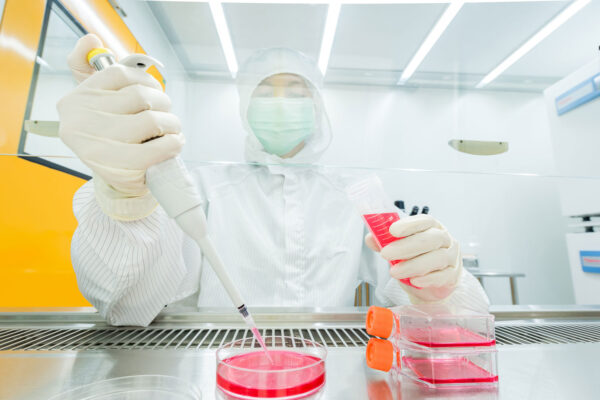
Improvements in treatment outcomes for hematological malignancies, especially for those of B-cell origin have vaulted forward thanks to chimeric antigen receptor T-cell (CAR-T) therapies. Typically, the modified T cells are engineered to seek out protein antigens, such as CD19, based on the known over-expression of that target by the patient’s neoplastic cells. However, cancerous cells exhibit aberrant expression patterns of many classes of molecules, not only proteins. Carbohydrate compounds, or ones which at least have a carbohydrate component, offer potentially effective targets for modified immune cells. This category of antigens may provide an edge in specific circumstances where these powerful therapies have not yet achieved breakthrough success.
Glycosphingolipids can be found on the cell surface of some tumors. The expression pattern of certain gangliosides, sialic acid-containing glycosphingolipids, have garnered special attention for their tumor-specific overexpression. The gangliosides GD2 and GD3 are differentially expressed in melanoma, neuroblastoma and breast cancer, whereas they are only expressed minimally or not at all by normal cells. This creates an opportunity in that they may function as a less widespread identifying ligand for CAR-T cells to target, potentially reducing off-target effects.
Furthermore, aberrant glycosylation of mucins, heavily glycosylated proteins found in mucosal tissues, is seen in various adenocarcinomas. Some of these cancers are associated with the presence of the mucin, MUC1 on their surface in a modified form, including pancreatic, lung and colon cancers. The altered glycosylation patterns on MUC1, such as the Tn and STn antigens, not only serve as diagnostic markers but also present an attractive target for CAR-T cell therapy.
Blood-group related Lewis antigens, such as Lewis Y (LeY), are currently being investigated as potential therapeutic CAR-T targets. (ClinicalTrials.gov ID: NCT03851146) The abnormal structures of these molecules hold promise as a reliable identifier of neoplastic cells in several cancer types because they are not found on normal cells, leading to minimal off-target effects. These cancer types include ovarian, lung and colorectal.
Carbohydrate antigen targets offer several potential advantages over peptide-based ones. They may be common to many cancer types, rare or absent on healthy cells, have immunosuppressive effects, and be more difficult for cancer cells to stop producing, more so than protein targets. These opportunities may not only be advantageous alone, but might be combined with other tools, such as immune checkpoint inhibitors. Adoptive immunotherapies like CAR-T cells are powerful, and work is only accelerating towards expanding their potential. There is ample opportunity for innovation in the field, promising improved care for all.
Reference
Amorós-Pérez B, Rivas-Pardo B, Gómez del Moral M, Subiza JL, Martínez-Naves E. State of the Art in CAR-T Cell Therapy for Solid Tumors: Is There a Sweeter Future? Cells. 2024; 13(9):725. https://doi.org/10.3390/cells13090725
